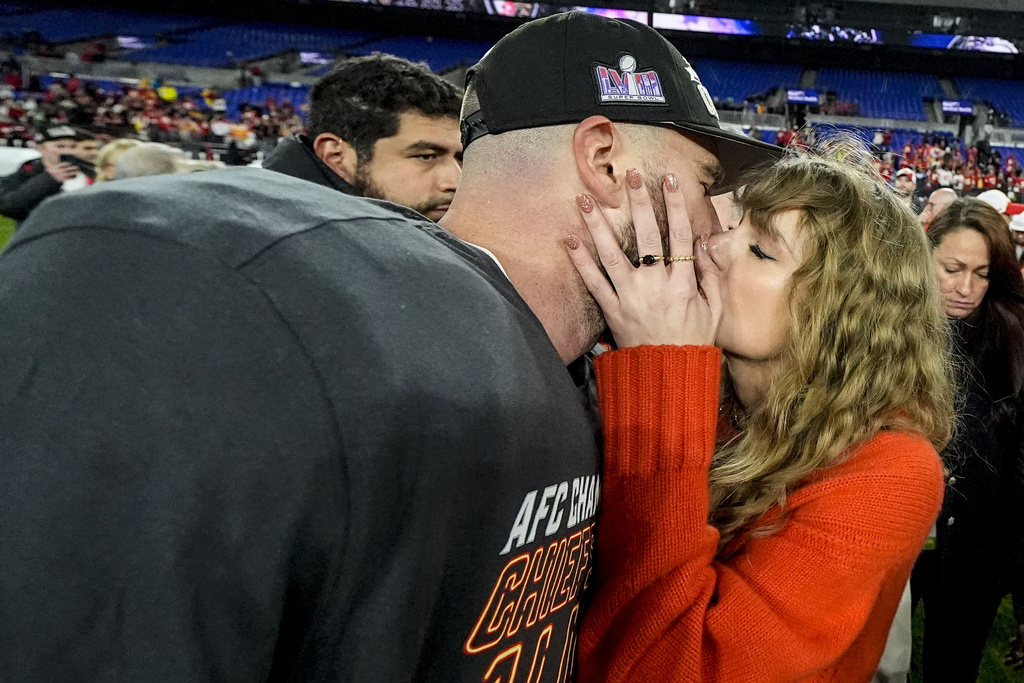In case you hadn’t heard, billionaire pop music star Taylor Swift is dating Kansas City Chiefs tight end Travis Kelce and is expected to be in attendance for the Super Bowl in Las Vegas on Feb. 11.
For the last four or so months, the love show between Swift and Kelce has been the dominant storyline in the NFL, and with Kelce’s Chiefs set to face the San Francisco 49ers in the Super Bowl, it is safe to assume there is at least two more weeks of Swift-Kelce fever in the cards.
But this media frenzy and popular craze over the relationship between two prominent celebrities is a symptom of a broader culture of celebrity idolatry that dominates the way people, especially younger generations, consume social media and perceive figures like Swift and Kelce.

Swift is, in many ways, a sort of American royalty. The obsession of so many people with her personal life and its command over the celebrity news cycle is reminiscent of the media frenzy and fan craze that followed the courtships of Prince William and Catherine Middleton in the 2000s, and the tragic relationship between Diana, Princess of Wales, and the now-King Charles III.
In a country without a royal family, celebrities in the United States have essentially taken the place that the British royal family occupies in the cultural ethos of the United Kingdom. Instead of the pomp and circumstance of Buckingham Palace, we have the glitz, glamour, and prestige of Hollywood.
The democratic nature of the U.S. eliminates the cultural influence of a royal house, but in the same way, it opens the door for celebrities like Swift to wield a massive amount of cultural influence they might otherwise not have. Legions of fans formulate their life goals from Swift’s lifestyle, and they implicitly trust her when she calls on them to do things such as register to vote.
In the same way, the breathless obsession with Swift and Kelce’s courtship is due to the fact that millions of Swift’s fans see in her relationship the same fairy tale ending for their romantic lives that they yearn for themselves.
As my colleague Tim Carney has so astutely noted, if Swift and Kelce were to get married and have a child, it could very well prompt a marriage and baby boom.
But as the Kelce-Swift craze reaches its fever pitch in Las Vegas for the Super Bowl, it is worth remembering that the admiration and obsession with their lifestyles and relationship can be just as much an attempt to fill a personal void as it is a genuine fandom for her music and his football talent.
We tend to lift celebrities up to a godlike stature, or in this case goddesslike, and then live their lives vicariously by breathlessly viewing and interacting with their every post on social media and consuming news and tabloid coverage. We envy a celebrity’s style, status, and success, and yet we worship him or her with a reverence that was once reserved only for the divine. We see celebrities as above reproach or criticism and believe they can do no wrong.
CLICK HERE TO READ MORE FROM THE WASHINGTON EXAMINER
I do not hold any ill will toward Swift and Kelce, even as many of my fellow conservatives accuse her of being some sort of Democratic psy-op due to her liberal politics and recent interest in political activism. And while there is no question about the political influence Swift could wield, the media and cultural obsession with her relationship is the most visible sign of a culture that worships celebrities with a religiouslike zeal.
We should be wary of that culture as it seeks to find meaning by trying to participate in the day-to-day life of people who live their lives distantly from us. As much as social media presents the illusion of this possibility, it will never be true.
